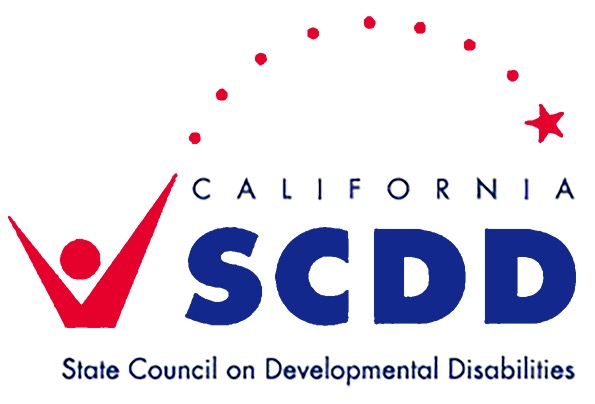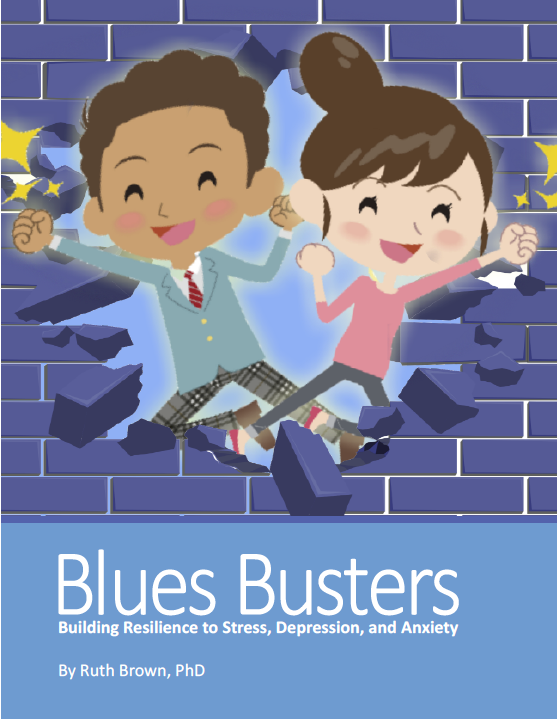Mental Health Alliance (MHA)
One-third of all persons with intellectual or developmental disabilities (IDD) have a psychiatric disorder that affects their daily functioning, combined with limited coping skills due to language difficulty and inadequate social supports (Nat. Assoc. of Developmental Disabilities 2018), which have only been exacerbated by the COVID pandemic. A vast majority of the children and adults with Down syndrome not only have various medical issues but can also have a co-existing diagnosis consisting of autism, psychosis, ADD, ADHD, OCD, etc., which makes the need for mental health services even more critical; many times, these co-occurring disorders can go undiagnosed or misdiagnosed.
Through our Mental Health Alliance Pilot Program, we provided information, trainings, resources and supports by partnering with therapists, therapy centers and training institutes to motivate and better equip mental health professionals to feel confident in working with individuals with Down syndrome and other Intellectual or Developmental Disabilities. The findings of the pilot program can be read in our final report.
Recorded trainings, communication tools and other resources can be accessed below.
For additional information or consultations please contact MHA@dscba.org
Supports and Resources
Perspectives from people with ID/D - on the need for Mental Health Services
DSCBA's Mental Health Service and the I/DD Population Training & Presentation
Expanding Your Knowledge on Mental Health and the I/DD Population
Mental Health Alliance Training on AAC - Learn effective ways to incorporate visual and communication supports within therapy.
Feeling Down, Looking Up – Mental Health & Down Syndrome - This short film examines these issues through the eyes of four families (including two self-advocates), who generously share their personal mental health journeys.
Mental Health Services; a perspective from self-advocate, Nicole Adler
Communication Tools and Supports
We have developed an online resource filled will samples of low-tech boards, visual supports and social stories to complement therapy sessions.
Outside Resources
Learn, Connect and Explore to better serve individuals with DD and Mental Health needs
- Mental Health & Developmental Disabilities- (MHDD) National Training Center - Access free online learning modules, webinar recordings, podcasts, resources.
- Subscribe to MHDD's Echo series- Free Online series to this virtual learning network that explores increasing access to evidence-based mental health and developmental disability services.
Videos / Articles on Basic Communication Tips
- Communicating Effectively with Individuals with Developmental Disabilities
- Building Bridges: Interacting with Adults Who Have Developmental Disabilities
- Tips for communicating with a client/patient
Books
|
Mental Wellness in Adults with Down Syndrome - Dr. Brian Chicoine and Dr. Dennis McGuire - A PDF is now available This book was written to point out ways that parents, adult siblings, teachers, paid caregivers, and others can effectively promote and maintain mental wellness in adolescents and adults with Down syndrome. But we also wrote this book because there are some biological differences as well as common environmental stresses that can make people with Down syndrome more susceptible to mood, emotional, and other mental health problems. We hoped to make it easier for other practitioners to recognize these problems and pursue treatments that will help the person regain his normal abilities and outlook on life. We also hoped to clarify that there are some common characteristics of Down syndrome that can be mistaken for evidence of mental illness but are nothing more than harmless quirks or useful coping strategies. |
 |
|
Blues Buster Workbook - Building Resilience to Stress, Depression, and Anxiety This workbook was designed to help clinicians/parents of children or self advocates with mosaic Down syndrome and other forms of Down syndrome to cope with mild feelings of stress, depression, and anxiety. The strategies in this book are based on evidence-based cognitive behavioral treatments (CBT) for depression and anxiety. This book is meant as an introduction to CBT techniques and may be helpful for those with mild symptoms. It can be downloaded, printed, photocopied and used for your own personal use. It may not be sold or distributed publicly without the written permission of the author. |
|
| Diagnostic Manual – Intellectual Disability (DM-ID-2) - More than 100 experts from around the world have now updated the DM-ID to accompany the DSM-5. The DM-ID-2 was developed to facilitate an accurate psychiatric diagnosis in persons who have intellectual disabilities and to provide a thorough discussion of the issues involved in reaching an accurate diagnosis. |  |
|
Cognitive Behavior Therapy for People with Intellectual Disabilities: Thinking Creatively by Andrew Jahoda, Biza Stenfert Kroese, Carol Pert This book examines the influence others have on the lives of people with intellectual disabilities and how this impacts their psychological well-being. Based on the authors’ clinical experiences of using cognitive behavioral therapy with people who have intellectual disabilities, it takes a social interactionist stance and positions their arguments in a theoretical and clinical context. |
|
|
Positive Identity Development- By Karyn Harvey This book provides a new theoretical perspective on treatment along with a variety of innovative tools and Workbooks. It rejects reducing adults with intellectual disabilities to a mere compilation of their behaviors and instead nurtures each individual’s sense of identity. Allowing psychologists, social workers and therapists to utilize the tools presented to enhance the effectiveness of the treatment they currently provide, this handbook promotes well-being on every level." PDF workbooks that compliment this book are available to download on Karyn Harvey’s website |
|
|
Trauma-Informed Behavioral Interventions: What Works and What Doesn't - By Karyn Harvey This book presents a trauma-informed paradigm within which to support people with intellectual disability psychologically and to establish the critical elements needed for recovery. As the author states in her introduction, "when the individual recovers, behaviors change. When the individual recovers, happiness can begin." |
|
|
Psychotherapy for Individuals with Intellectual Disability - Edited by: Robert J. Fletcher, DSW, ACSW Written by respected authorities in the field, this book offers insightful and useful ways to provide psychotherapy treatment for individuals who have intellectual disability (ID). Discussing a variety of theoretical models and techniques, this record covers all three modalities—individual, couple, and group therapies—and addresses specialty cases, including victims of abuse, people in mourning, and sufferers of Autism Spectrum Disorder. |
|
|
Intellectual Disability, Trauma and Psychotherapy - Edited by Tamsin Cottis Focuses on the delivery of psychotherapy services for those with intellectual disabilities. Leading professionals in this specialist field are brought together to describe the history, theory and practice of their work in twelve focused chapters that draw on the work of psychotherapists including Bion, Winnicott, Sinason and Alvarez. |
|
|
Psychological Therapies for Adults with Intellectual Disabilities - Editor(s): John L. Taylor, William R. Lindsay, Richard P. Hastings, Chris Hatton Psychological Therapies for Adults with Intellectual Disabilities brings together contributions from leading proponents of psychological therapies for people with intellectual disabilities, which offer key information on the nature and prevalence of psychological and mental health problems, the delivery of treatment approaches, and the effectiveness of treatment. |
|
|
Healing Trauma: The Power of Group Treatment for People with Intellectual Disabilities by Nancy J. Razza and Daniel Tomasulo Explores the overlap between psychological trauma and developmental disabilities. This work explores specifically discusses people with intellectual disabilities, mostly in the mild to moderate range.  Razza and Tomasulo maintain that the fact that people with intellectual disabilities suffer higher than average rates of trauma and sexual abuse has been ignored. In addition, this population has been thought to be unable to benefit from traditional psychotherapy.  The book introduces the reader to a specific group therapy method called interactive-behavioral therapy (IBT) that the authors created for clients with developmental disabilities and psychiatric difficulties. |
|
|
Mental Health Approaches to Intellectual/Developmental Disability: A Resource for Trainers 2nd Edition Proper support of mental wellness among persons with IDD requires a significant body of information and knowledge, and the authors of this resource are happy to offer it as a means for educating professionals and care providers. This resource is designed to be used with a variety of audiences, including Direct Support Professionals and the full spectrum of behavioral healthcare professionals. The resource is organized into modules, within which materials are presented in Microsoft PowerPoint slides and speaker notes. For professionals seeking more extensive information, references have been provided at the end of each module. |
|
|
The Good Stuff: Practical Positive Supports for People with Intellectual and Developmental Disabilities and Mental Illness - Edited by Uzama Price, EdD, NADD-DDS, BCBA & Daniel J. Baker, PhD, NADD-CC, CCEP In this book, NADD brings together 20 experts in the field to build a framework for creating positive, person-centered supports for people with IDD/MI, using the latest evidence-based strategies. With a focus on whole-person wellness, The Good Stuff empowers anyone who cares for, works with, or loves someone with IDD/MI to honor their individual’s unique needs and help them live their best possible life. |
|
|
Helping your Child with Down syndrome to Understand Death and Cope with Grief is an easy-to-read guide that explains why people with Down syndrome may respond to death in ways that seem ‘wrong’. This book also teaches parents how to help their children understand and cope with grief in healthy ways.
Author Rose Reif is a Licensed Clinical Mental Health Counselor, a Certified Rehabilitation Counselor, and Qualified Developmental Disability and Mental Health Professional. In her counseling practice, she provides mental health counseling to adult clients with I/DD and parents raising disabled children. She has presented on the topic of Death and Down syndrome to many organizations throughout the US, including the Down Syndrome Medical Interest Group and the National Down Syndrome Society
|
Many of these books can be found for purchase on the NADD website
Podcasts
-
-
-
The Low Down Podcast from DSRF - Feeling Down; Mental Health and Down Syndrome
-
-
Article / Journal Publications
-
Prevalence of Mental Health Conditions among individuals with Down Syndrome in the United States
-
Promoting Mental Wellness in Teens & Adults with Down Syndrome
-
Canada Down Syndrome Society’s 3-21 Magazine, Mental Health Issue
-
​​Evidence-Based Practices in Intellectual Disability and Behavior Disorders
-
Adapting Cognitive Behavioral Therapy for People with Intellectual / Developmental Differences
Funders
|
|
|
 |



















 Contact Us!
Contact Us!

